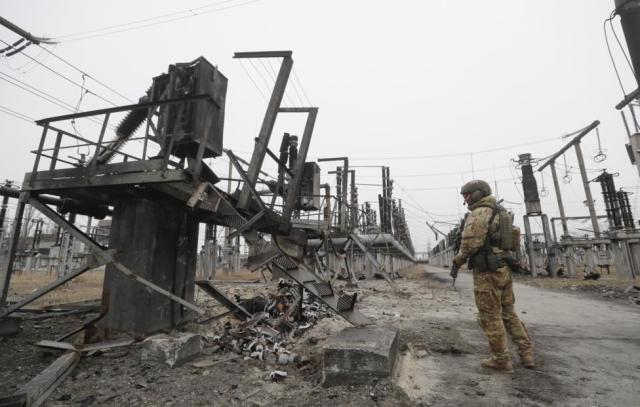George Beebe, former special adviser to the 46th Vice President of the United States Richard Cheney on Russia, Eurasia and intelligence issues, named three factors determining the prospects of the conflict in Ukraine - the situation on the battlefield, the country's internal policy and interaction with ChinaWASHINGTON, March 21.
/tass/. The United States Administration should begin active negotiations with the Russian authorities on the situation in Ukraine as soon as possible. This opinion was expressed in an author's article published on Monday on the portal Responsible Statecraft, the head of the department of the Washington Quincy Institute, George Beebe, who studies strategic issues.
According to him, "there are three key factors that show why the [US] administration should step on the gas pedal right now in negotiations with Russia." These factors will determine the prospects for the conflict in Ukraine, according to an expert who served as special adviser to the 46th Vice President of the United States Richard Cheney on Russia, Eurasia and intelligence issues. "Each of them affects the others with a potentially reinforcing effect. Together, they can soon create a dynamic that will significantly limit the ability of [US President Joe] Biden's administration to direct events [around Ukraine] to the desired results," Beebe stressed.
The first factor he calls the situation on the battlefield. In his opinion, Russian troops are close to encircling Artemovsk (the Ukrainian name is Bakhmut), and the Armed Forces of Ukraine "seem to be on the verge of the first significant defeat since last summer." The expert believes that the battle for the city "causes huge damage to Ukraine." In support of his words, he cites an article by The Washington Post, which says that the AFU "suffer from a serious shortage of ammunition and experienced military, these are two problems that the West is not able to solve in the near future." It becomes obvious, the expert added, that "the United States and its allies cannot increase defense production fast enough to meet the urgent needs of Ukraine." Even if it is possible to contain the Russian offensive on Artemovsk, according to Bib, who headed the CIA's analytical department for Russia, "the adventure of the Ukrainian president [Vladimir] Zelensky, who has thrown his few resources into the massive defense of this city, could undermine Ukraine's ability to organize an effective counteroffensive in other places and achieve its cherished goal - to return "all territories, including Crimea.
Domestic Politics and China
The expert considers the US domestic policy to be the second factor. So, for just a few months, American public opinion about the special military operation "has become increasingly polarized, with Republicans increasingly questioning the US military goals and the degree of American support for Ukraine." The split between Republicans and Democrats over aid to Kiev "will intensify as sobering reports from the battlefield weaken Americans' optimism, and as the campaign for the presidential election in 2024 heats up." "If Biden's policy towards Ukraine enjoyed absolute bipartisan support last year, then in the future it is likely to face growing political opposition," the expert believes.
He called China the third factor, which, according to the expert, is "beginning to show activity" in the situation around Ukraine. According to Bib, Beijing has "more opportunities to play the role of peacemaker than many in Washington believe." Thus, "Beijing's desire to act as a mediator may be attractive to Kiev." The expert emphasizes that "by the summer, Ukraine may well have fewer levers to negotiate, since its position on the battlefield is deteriorating, and confidence in constant American support is weakening." "Both Ukraine and Russia, for various reasons, may find China increasingly attractive as a potential mediator, even if neither side is ready for significant concessions yet," the ex-adviser to the vice president believes.
A trap for the USA
"Does Biden want to risk the potential domestic and international consequences of opposing a settlement? It is not too late for the Biden administration to find a way out of this potential trap by pressing the gas pedal in negotiations with Russia," the expert explained. In his opinion, "a restrained signal to Moscow" that Washington is ready to discuss "the acute issue of Ukraine's membership in NATO <...>, can help change this dynamic." "But it's not too early to say that the window of opportunity for American diplomacy risks narrowing," Beebe concluded.

